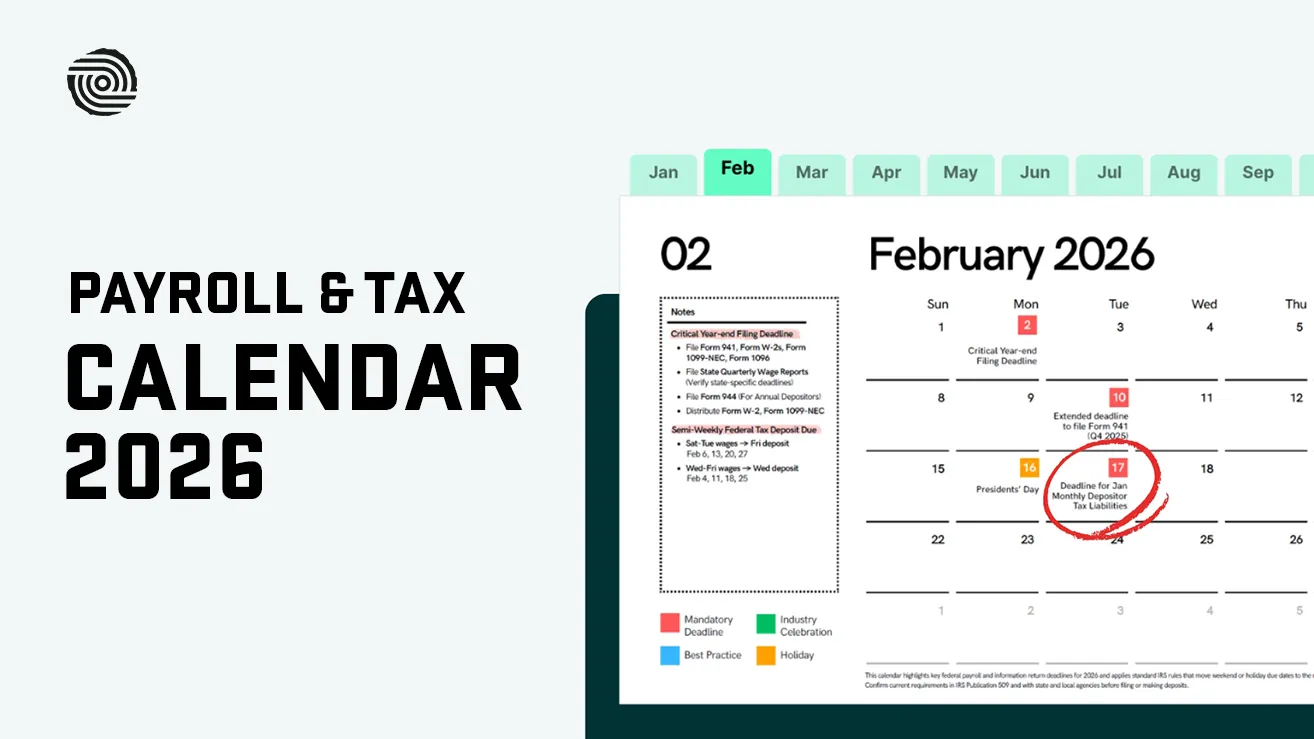Simplifying Construction Payroll: Solutions for Complex Challenges

Are you tired of spending hours every week trying to make sense of your payroll data?
The Construction industry is fast-paced with multiple job sites, complex labor laws and compliance, and ever-changing project requirements. These companies face unique challenges when it comes to payroll management.
In this blog, we will delve into the challenges of managing payroll in the construction industry and explore effective strategies to streamline the process.
Challenges in Payroll Management in Construction
Variable Workforce
The construction industry often relies on a fluctuating workforce that includes full-time employees, part-time workers, contractors, and subcontractors. Keeping track of different payment structures and ensuring accurate compensation can be challenging.
Complex Time Tracking
Construction projects involve various tasks, each with different hourly rates and overtime rules. Tracking time and the rate spent on each task accurately is crucial to avoid underpaying or overpaying employees.
Regulatory Compliance
The construction industry is subject to numerous labor laws, tax regulations, and safety standards and regulatory compliance. Failure to comply with these regulations can lead to legal complications and financial penalties.
Data Accuracy
Any Manual data entry increases the risk of errors, such as incorrect hours, rates, and deductions. These errors can result in disputes and impact employee morale.
Time Sensitivity
The fast-paced nature of construction projects means that payroll processing must be timely and accurate to maintain worker satisfaction and meet financial obligations.
Here are a few tips and strategies that you as a construction business can implement to streamline the payroll process and improve overall efficiency.
Efficient Payroll Management Strategies
Implement Construction Payroll software: Transitioning from manual payroll processes to payroll software for the construction industry can significantly enhance efficiency. Look for a software solution that offers automated time tracking, direct deposit options, and comprehensive reporting capabilities. By electronically managing employee hours, wages, and deductions, you can reduce errors, save time, and simplify the payroll process.
Invest in accurate time tracking tools: Accurate time tracking is critical in the construction industry, where workers are often spread across multiple job sites. You may have a requirement to track mileage as well. Implementing time-tracking software for construction with Geo-fencing capabilities will enable employees to clock in and out from anywhere on the job site. This ensures accurate record-keeping and eliminates disputes related to work hours.
Stay compliant with labor laws and regulations: Construction businesses must keep up with labor laws and regulations to avoid penalties and legal issues. As a business owner, you need to familiarize yourself with wage regulations, overtime rules, benefits requirements, and tax obligations specific to the construction industry or work with a certified payroll professional. Another alternative for construction companies would be to implement construction payroll software that ensures compliance with labor laws and regulations.
Streamline pay processes for multiple projects: Construction companies often work on multiple projects simultaneously, making payroll management complex. To ensure accuracy and streamline the process, consider implementing a centralized system that tracks labor costs and allocates them accordingly to specific projects. This way, you can easily monitor expenses, simplify cost allocation, and ease administrative burdens.
Lorem ipsum dolor sit amet, consectetur adipiscing elit. Donec ullamcorper mattis lorem non. Ultrices praesent amet ipsum justo massa. Eu dolor aliquet risus gravida nunc at feugiat consequat purus. Non massa enim vitae duis mattis. Vel in ultricies vel fringilla.
Introduction
Mi tincidunt elit, id quisque ligula ac diam, amet. Vel etiam suspendisse morbi eleifend faucibus eget vestibulum felis. Dictum quis montes, sit sit. Tellus aliquam enim urna, etiam. Mauris posuere vulputate arcu amet, vitae nisi, tellus tincidunt. At feugiat sapien varius id.
Eget quis mi enim, leo lacinia pharetra, semper. Eget in volutpat mollis at volutpat lectus velit, sed auctor. Porttitor fames arcu quis fusce augue enim. Quis at habitant diam at. Suscipit tristique risus, at donec. In turpis vel et quam imperdiet. Ipsum molestie aliquet sodales id est ac volutpat.

Ipsum sit mattis nulla quam nulla. Gravida id gravida ac enim mauris id. Non pellentesque congue eget consectetur turpis. Sapien, dictum molestie sem tempor. Diam elit, orci, tincidunt aenean tempus. Quis velit eget ut tortor tellus. Sed vel, congue felis elit erat nam nibh orci.
Dolor enim eu tortor urna sed duis nulla. Aliquam vestibulum, nulla odio nisl vitae. In aliquet pellentesque aenean hac vestibulum turpis mi bibendum diam. Tempor integer aliquam in vitae malesuada fringilla.
Elit nisi in eleifend sed nisi. Pulvinar at orci, proin imperdiet commodo consectetur convallis risus. Sed condimentum enim dignissim adipiscing faucibus consequat, urna. Viverra purus et erat auctor aliquam. Risus, volutpat vulputate posuere purus sit congue convallis aliquet. Arcu id augue ut feugiat donec porttitor neque. Mauris, neque ultricies eu vestibulum, bibendum quam lorem id. Dolor lacus, eget nunc lectus in tellus, pharetra, porttitor.
Ipsum sit mattis nulla quam nulla. Gravida id gravida ac enim mauris id. Non pellentesque congue eget consectetur turpis. Sapien, dictum molestie sem tempor. Diam elit, orci, tincidunt aenean tempus. Quis velit eget ut tortor tellus. Sed vel, congue felis elit erat nam nibh orci.
Mi tincidunt elit, id quisque ligula ac diam, amet. Vel etiam suspendisse morbi eleifend faucibus eget vestibulum felis. Dictum quis montes, sit sit. Tellus aliquam enim urna, etiam. Mauris posuere vulputate arcu amet, vitae nisi, tellus tincidunt. At feugiat sapien varius id.
Eget quis mi enim, leo lacinia pharetra, semper. Eget in volutpat mollis at volutpat lectus velit, sed auctor. Porttitor fames arcu quis fusce augue enim. Quis at habitant diam at. Suscipit tristique risus, at donec. In turpis vel et quam imperdiet. Ipsum molestie aliquet sodales id est ac volutpat.
Mi tincidunt elit, id quisque ligula ac diam, amet. Vel etiam suspendisse morbi eleifend faucibus eget vestibulum felis. Dictum quis montes, sit sit. Tellus aliquam enim urna, etiam. Mauris posuere vulputate arcu amet, vitae nisi, tellus tincidunt. At feugiat sapien varius id.
Eget quis mi enim, leo lacinia pharetra, semper. Eget in volutpat mollis at volutpat lectus velit, sed auctor. Porttitor fames arcu quis fusce augue enim. Quis at habitant diam at. Suscipit tristique risus, at donec. In turpis vel et quam imperdiet. Ipsum molestie aliquet sodales id est ac volutpat.
- Lectus id duis vitae porttitor enim gravida morbi.
- Eu turpis posuere semper feugiat volutpat elit, ultrices suspendisse. Auctor vel in vitae placerat.
- Suspendisse maecenas ac donec scelerisque diam sed est duis purus.

Lectus leo massa amet posuere. Malesuada mattis non convallis quisque. Libero sit et imperdiet bibendum quisque dictum vestibulum in non. Pretium ultricies tempor non est diam. Enim ut enim amet amet integer cursus. Sit ac commodo pretium sed etiam turpis suspendisse at.
Tristique odio senectus nam posuere ornare leo metus, ultricies. Blandit duis ultricies vulputate morbi feugiat cras placerat elit. Aliquam tellus lorem sed ac. Montes, sed mattis pellentesque suscipit accumsan. Cursus viverra aenean magna risus elementum faucibus molestie pellentesque. Arcu ultricies sed mauris vestibulum.
Critical Construction Compliance | Awareness Week
Mar 16, 2026
Apr 15, 2026
Nov 30, 2026
Dec 15, 2026
Essential resources for contractors








.webp)